The "2024 Beijing University of Chemical Technology Frontier Interdisciplinary Symposium on Chemistry" was successfully held on December 8, 2024, at the Conference Center on the Chaoyang Campus. The symposium, co-hosted by the School of Chemistry and the State Key Laboratory of Chemical Resource Utilization at Beijing University of Chemical Technology, aimed to explore new principles, methods, and pathways arising from the deep integration of chemistry with disciplines such as chemical engineering, materials science, energy, and environmental science, in order to promote innovation and development in the field of chemistry. The event was co-chaired by Professor Wei Min, Dean of the School of Chemistry, and Professor Liu Kesong, Secretary of the Party Committee at the School of Chemistry, Beijing University of Aeronautics and Astronautics. Professor Mao Lanqun from Beijing Normal University, Professor Tang Yu from Lanzhou University, Professor Li Landong from Nankai University, Professor Xu Bingjun from Peking University, and Professor Zhu Guangshan from Northeast Normal University attended the meeting, with nearly 300 faculty and students from the university participating in the event.

Professor Wei Min delivered a speech at the opening ceremony, expressing a warm welcome on behalf of our college to the distinguished scholars and experts present. She pointed out that the symposium closely followed the core theme of "frontier interdisciplinary of chemistry", and jointly exchanged the important status and role of chemistry in exploring international frontier fields, meeting major national needs, and promoting economic construction. She shared valuable experiences and profound insights in this field. These wonderful presentations will inspire more thinking and bring new enlightenment to the development of chemistry and the cultivation of top innovative talents.
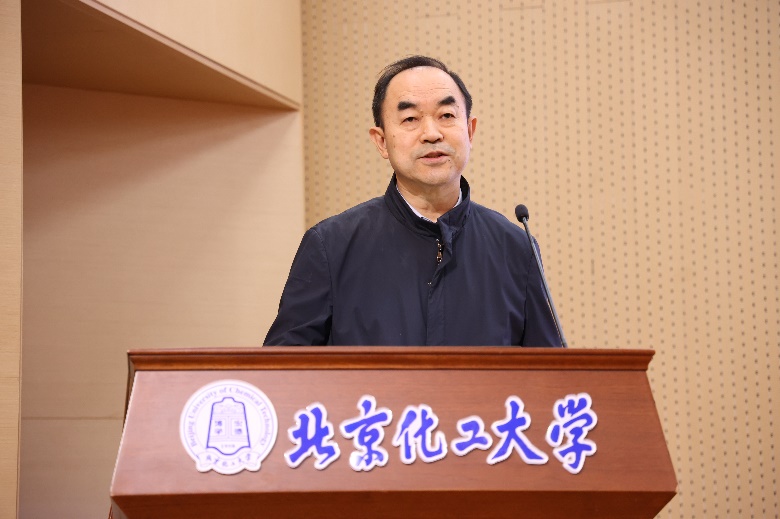
Professor Mao Lanqun from Beijing Normal University delivered a fascinating academic report titled "Opportunities and Challenges in Brain Chemistry Research." Professor Mao delved into the foundational role of chemistry in brain science research, highlighting that the material composition and functional realization of the brain are closely connected to chemistry. He emphasized the construction of a principle and method system for brain chemical measurements across scales, from living organisms to single vesicles, elucidating the core mechanisms of neural signal transduction and transmission. Furthermore, he explored cutting-edge pathways in brain chemical regulation and functional simulation, pointing the way for the elucidation of brain disease mechanisms and brain-like research.
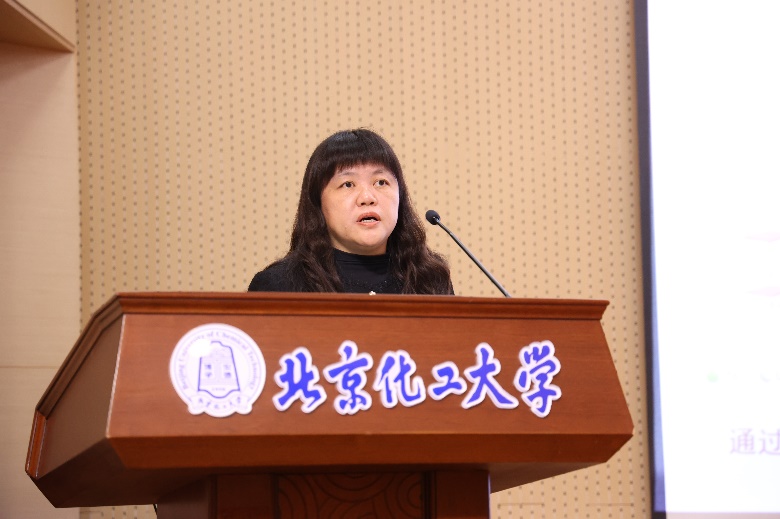
Professor Tang Yu from Lanzhou University focused on the topic of "Research on Functional Materials of Rare Earth Complexes," pointing out that rare earths, as an extremely important and non-renewable strategic resource in China, have an immeasurable strategic position in breaking through the bottleneck of rare earth science and technology development, realizing the high-value utilization of resources, and promoting industrial development. The basic theoretical research on functional materials of rare earths is of great significance. Professor Tang elaborated in detail on the exquisite process of constructing complexes based on the unique electronic structure, energy level characteristics, and redox properties of rare earth elements, and through precise coordination design and multi-level assembly structure regulation, successfully achieved the innovation and application of material optoelectronic functions in the fields of catalysis and energy devices, opening up a new horizon and innovative ideas for the development of rare earth coordination chemistry.
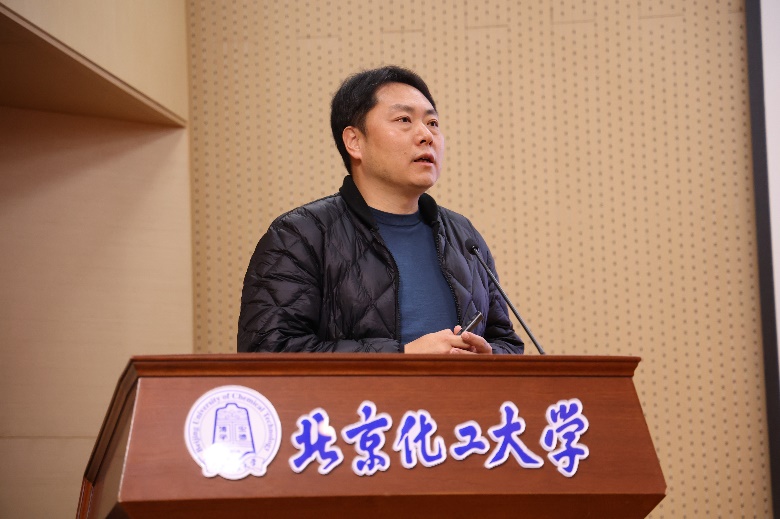
Professor Li Landong from Nankai University focused on the theme of "Molecular Sieve Confined Chemistry and Catalysis," noting that molecular sieves, as adsorbents and catalysts in large-scale industrial applications, play a pivotal role in many fields. Professor Li delved into revealing the nature of molecular sieve confined adsorption and catalysis at the molecular level, which will provide a solid scientific basis and theoretical support for the innovative design of high-performance molecular sieve materials and the optimization of process workflows. At the same time, he extended the concept of confined chemistry to the electronic scale, aiming to understand the nature of catalysis mediated by electrons.
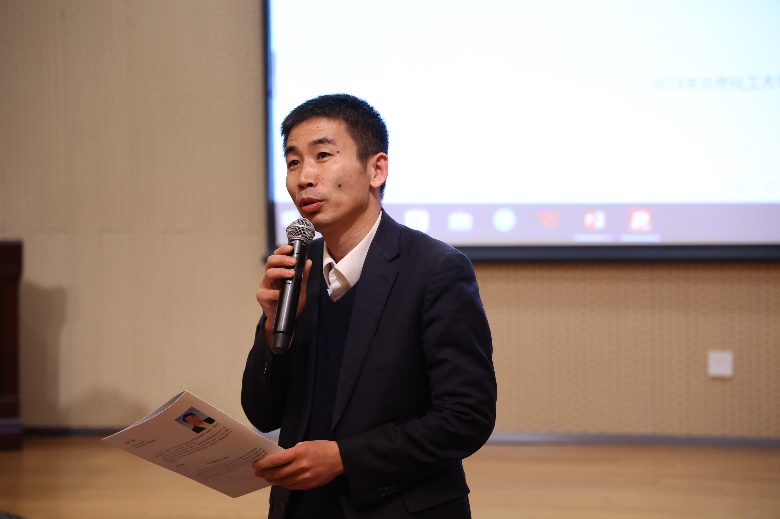
Professor Liu Kesong, Secretary of the Party Committee of the School of Chemistry at Beijing University of Aeronautics and Astronautics, presided over the second half of the symposium. He pointed out that the essence of this symposium is to take discipline construction as the strategic core, deeply refine the connotation and extension of the chemical discipline, promote interdisciplinary integration and collaborative innovation, comprehensively enhance the capacity for discipline construction and the optimization and upgrading of the talent training system, and jointly explore the high-quality and leapfrog development of the chemical discipline.
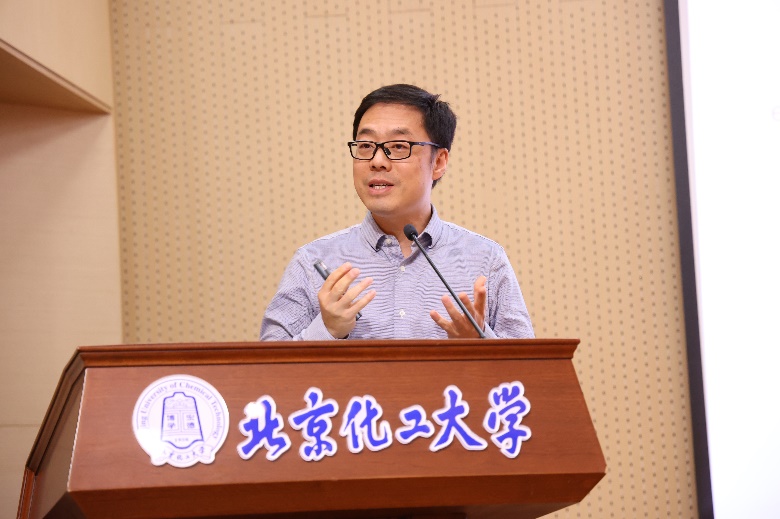
Professor Xu Bingjun from Peking University presented an exciting academic report on the field of renewable electro-energy catalytic reduction of carbon dioxide with the title "A Brief Analysis of the Mechanism of CO Electroreduction on Cu-based Catalysts and Cation Effects." Professor Xu introduced in detail the latest achievements on the influence of different alkali metal cations on the elementary steps of CO on Cu-based catalyst surfaces through advanced in situ electrochemical spectroscopy and kinetic research methods, providing a new perspective and key data support for theoretical research and technological innovation in this field.
environment.
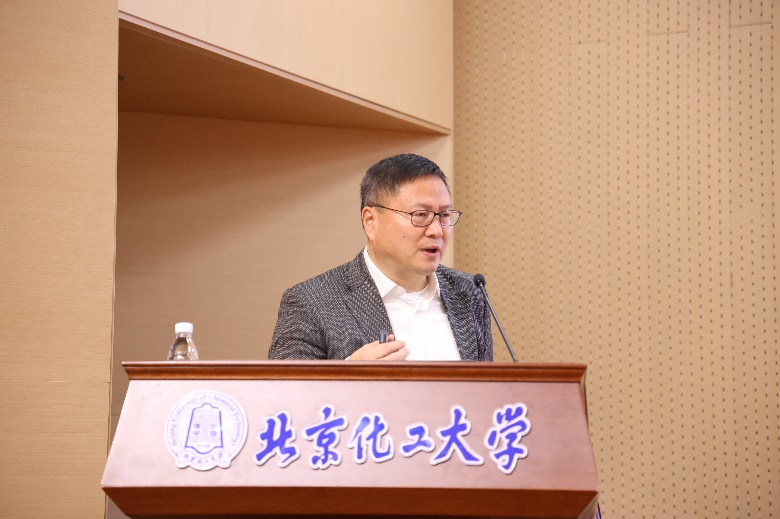
Professor Zhu Guangshan from Northeast Normal University gave a comprehensive presentation on the topic of "Porous Aromatic Frameworks (PAFS) — Organic Molecular Sieves," elaborating on the outstanding application value and broad development prospects of molecular sieve materials in the fields of energy and environment. Professor Zhu fully utilized the unique advantage of the structural designability of porous aromatic framework materials, showcasing the rich functions and innovative application examples of organic molecular sieves in catalytic reactions, material separation, and the extraction of important strategic elements, opening up a promising new realm for new functional materials of PAFS related to energy and environment.
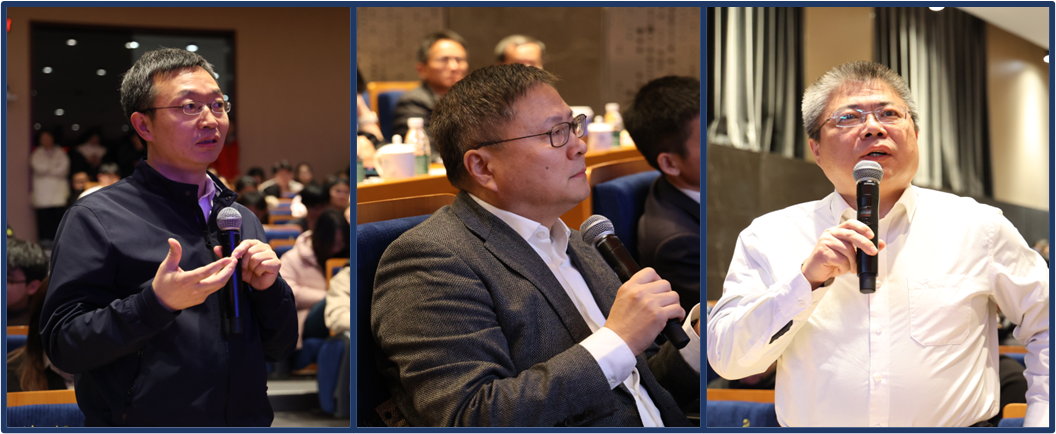
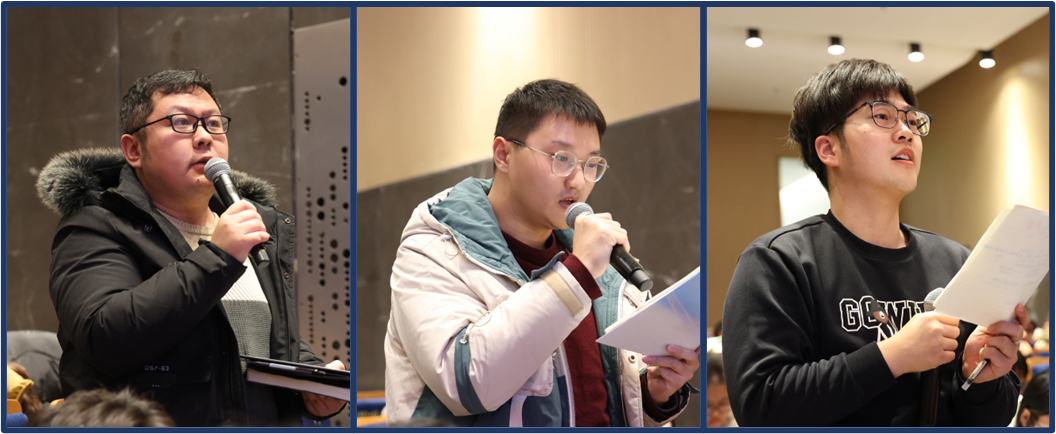
Throughout the symposium, the atmosphere was exceptionally lively and the venue was packed with attendees. The faculty and students engaged in in-depth discussions and exchanges with the experts and scholars, gaining rich academic nourishment and innovative inspiration from the collision and integration of ideas. The successful holding of this symposium has built a platform for cooperation and exchange in the frontier interdisciplinary field of chemistry, which will undoubtedly have a positive impact on the construction of our university's chemistry discipline, propelling it towards a new journey and achieving new breakthroughs.
